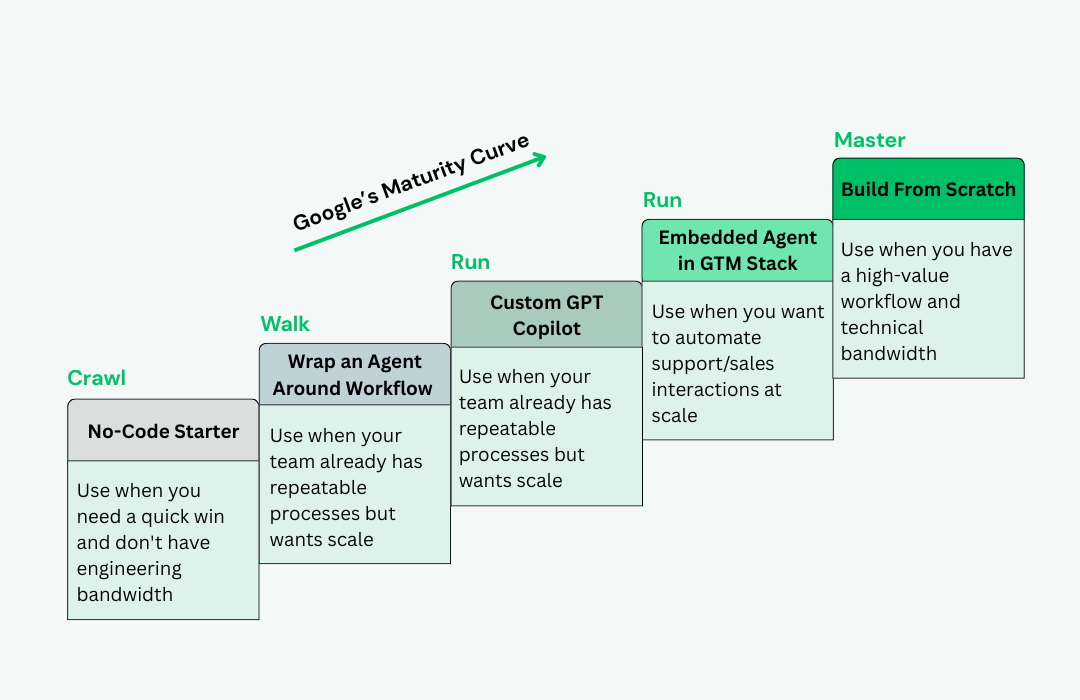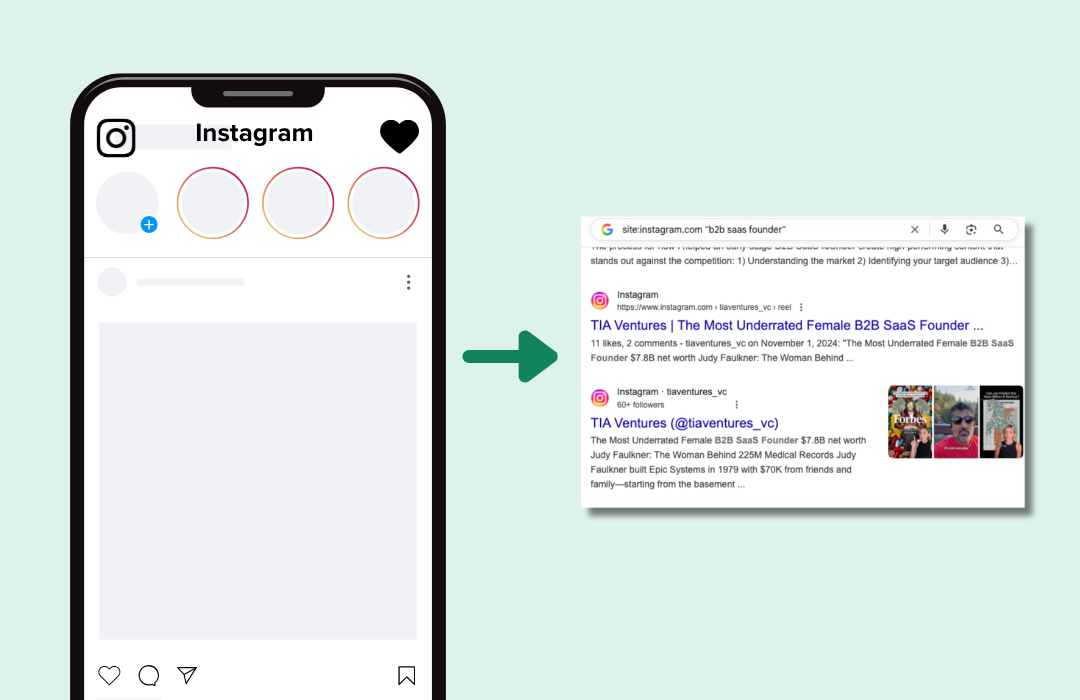MQLs? Aligning Marketing Metrics with Revenue Goals

Ah, MQLs.
Those three little letters that can stir up so much debate in the marketing and go-to-market world.
What I mean by MQLs is Marketing Qualified Leads.
In the wise words of Charlie Munger: “Show me the incentive, and I’ll show you the outcome.”
It’s a simple truth, isn’t it? We tend to chase what we’re rewarded for.
Let’s play with a thought experiment for a second – I did something similar on my recent podcast episode with my partner Max Altschuler (Apple/Spotify).
We asked ourselves: ‘Would you rather have your competitor work remotely or be all huddled up in an office together?’ Our unanimous pick? Remotely.
Now, let’s take this idea and apply it to the world of marketing metrics. Imagine someone offers you a choice: ‘I can double your MQLs’ or ‘I can double your pipeline.’ Which one makes your heart beat faster?
I’ll let you answer that one.
…who am I kidding? Staying quiet on go-to-market topics isn’t exactly my style – so let’s get into it.
💚 Sponsor shoutout: Flex.
One thing we’ve learned in helping our founders and operators scale their businesses is that cash is one of their most precious resources. Cashflow is the lifeblood of a business.
That’s why we’ve not only switched our own banking over at GTMfund, but we’ve also partnered with Flex to help companies improve the way they manage their cashflow. Flex is a finance super app built around a credit card with unique Net-60 day terms that enables businesses to make an investment today and pay it back 60 days later with zero percent interest. If your business growth is constrained by the cashflow you need for inventory, advertising, or something else, Flex could provide you with an interesting growth lever.
MQLs – should they stay or should they go now?
Knowing that people are incentivized by what they’re rewarded for, marketing metrics boil down to alignment. But, are MQLs aligned?👇
The role of marketing
As Seiyonne Suriyakumar (Head of Marketing at Superhuman) expresses: “metrics come down to what the ‘role’ of marketing is at the company and where they can drive the most impact.
For example, if the value of marketing is:
- Building and evangelizing the brand of the company.
➝ Marketing should be held accountable for sentiment, share of voice, earned media placements, and traffic.
- Driving self-serve ARR (PLG).
➝ Marketing should be accountable for signups, trial starts, seats, monetized seats, and self-serve ARR.
➝ Can also be responsible for PQLs, if there is a sales motion to upsell self-serve.
- Driving pipeline for sales (SLG).
➝ Marketing should be accountable for Opportunities created (not MQLs) and conversion through the funnel, in collaboration with sales.”
The case against MQLs
I will be as bold as to say: Those that are incentivized on top of funnel won’t make it.
If revenue is the North Star metric, everything you do should drive towards that.
There are still marketing teams that don’t own a revenue number, which is crazy.
Nicole Wojno Smith (VP of Marketing at Tackle) suggests that “marketers should be looking at their efficiency and measuring the total investment per SQL, per opportunity, etc. in order to keep a seat at the revenue table.”
In most cases, broadly tracking ‘MQLs’ can be beneficial. However, there’s often a misalignment when MQLs increase without impacting actual opportunities and pipeline, which can lead to false signals.
While any metric can be a valuable proxy, it ultimately does not matter if it does not translate into revenue.
Pipeline and opportunities are a much higher signal for success than MQLs.
Kevin White (Head of Marketing at Common Room) provides a thoughtful breakdown behind the shift from MQL to Pipeline as a marketing metric, outlining five reasons we are seeing this shift:
- MQLs aren’t created equal.
- They are a vanity metric.
- Pipeline better aligns with sales.
- Efficiency.
- User preferences.
He also dives into the challenges with MQLs and the need for a change.
Read Kevin’s full breakdown article here.
Strongly worded opinions include that of Nicole Wojno Smith: “I would love to never be asked about MQLs again!”
These opinions aren’t simply surface preferences, they are rooted in clear compelling reasoning.
If not MQLs – what?
Nicole is a big believer that marketing should be held accountable to metrics that tie directly to revenue. It’s not even about ‘sourced’ pipeline, like marketing-sourced pipeline; rather, total qualified pipeline generated should be considered.
If selling up-market and doing higher ACV deals, most likely 90% of these are being touched by sales, marketing, and partners.
Meaning, revenue is a team sport.
Who wants to squabble over first-touch vs. last-touch or influenced pipe?
Not Nicole and not other marketing leaders.
Rather, Nicole prefers to focus on marketing owning total qualified pipeline generated and partnering with the go-to-market organization to build the right programs to accelerate pipeline and win together.
Sarah Hartland (3X Demand Gen Leader) supports this notion with her experience: “The most effective measurement swap I’ve made is ditching MQLs and replacing them with demo requests. This focuses you on a metric that really matters, while also working in a traditional funnel model (if you’re still committed to that). Other metrics are diagnostic, not your north star.”
A clear north star is important to have.
As Seiyonne Suriyakumar advises: “Marketing can’t do everything, and lack of focus is the kryptonite for world-class marketing teams. Like any team, they must have a single north star that they are driving towards. All activities and priorities must stem from that north star because the tactics vary greatly, as does the talent you need to drive towards that. This is especially critical for startups and younger companies, who don’t have the resources of a large scaled marketing team.
For founders — pick a north star, equip your leader to chase after that north star, and don’t change the goalposts every quarter. Discuss priorities, but keep the goal the same and get out of the way. If you’ve hired a good marketing leader whose skills align to the north star, they’ll help you get there.”
👀 More for your eyeballs:
Starts with A:
- Apple: Since it began taking preorders for the Apple Vision Pro on January 19, the company has sold about 200,000 units.
- Amazon: A year and a half after announcing its intention to acquire iRobot, Amazon has dropped the deal.
- AI: Google is releasing a new AI-powered tool, ImageFX, for image creation.
Super Bowl is around the corner:
- Gong did Super Bowl ads starting in 2021 and 2022 before it was ‘cool’ for B2B companies, setting a new record week for pipeline creation at the company. Listen to Udi Ledegor’s story about it on Demandbase’s channel.
- Speaking of Super Bowl advertising, some simply broke out from the pack and live on as memorable moments. Here are 20 groundbreaking campaigns dating back to 1984.
👂 More for your eardrums:
Amit Pande is CMO and EVP of Strategy at Aviso AI, a leading revenue intelligence platform. Previously, Amit led marketing efforts at startups like Tact AI (1st AI Assistant for Sales backed by AWS, Microsoft, and Salesforce), HP Inc (next-gen computing) and Spire AI (Human Capital SaaS). In a prior life, Amit also led product and UX teams at Yahoo and Oracle.
In this episode, you’ll get insight on how to fight off giant incumbents with scrappy, clever go-to-market strategies and tactics, mental models for success, and career growth advice.
Listen on Spotify or find it anywhere you get your podcasts by searching “The GTM Podcast.”
🚀 Start-ups to watch:
Owner.com: Just announced their $33m Series B round. Owner is building the platform to make online growth easy for mom-and-pop restaurant owners. In short, Owner is “HubSpot for restaurants.” Read about their funding round.
Vanta: Crossed $100M in ARR, nearly doubling our customer base to 7,000 companies globally, including Atlassian, Chili Piper, Flo Health and Quora. Read about their ARR milestone.
Fora: Just stepped out of stealth and announced its $3.8m Seed funding. Fora is an innovative executive relationship management (ERM) platform poised to transform C-suite decision-making through cutting-edge AI technology. Read about their debut to the world.
🔥 Hottest GTM jobs of the week:
- Business Development Representative at Amper (Remote – Chicago)
- Growth Marketing Manager at Noibu (Remote)
- Director of Marketing and Partner Operations at Writer (Remote or SF)
- Customer Support Engineer at Atlan (Remote – US)
- Customer Success at Pocus (Remote, SF or NYC)
See more top GTM jobs on the GTMfund Job Board.
That’s it, that’s all.
Happy February, happy leap year month.
Every four years, we get one extra day this month – an extra day of opportunity to supercharge go-to-market strategies and hit those numbers.
Have a great weekend!
Barker ✌️







